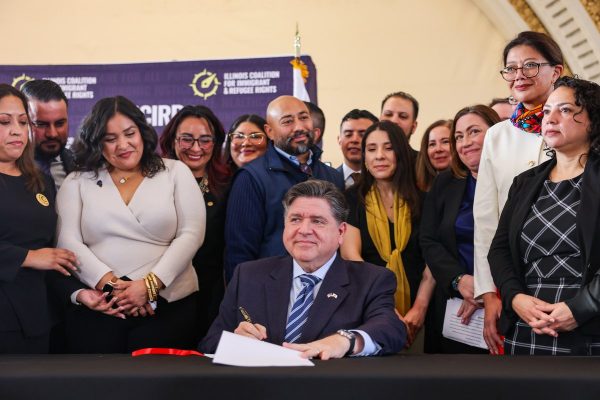Addressing privilege for more inclusive holidays
Dec 3, 2013
Last updated on May 11, 2016 at 08:56 a.m.
It is now the most glorious and wonderful time of the year! Thanksgiving is over, the people who took advantage of all the Black Friday deals are ready for the holidays and the war on Christmas is in full force.
Fox News went live with their “War on Christmas” page so they can report when the “right to celebrate Christmas is under attack” and to see “where the latest challenges to religious freedom are taking place.”
Every year, around this time, there is a battle cry from some followers of the Christian faith that Christmas is under attack and that their rights to celebrate the holiday are being torn from the fabric of American traditions.
When talking about the war on Christmas and other controversial topics, I find it important to recognize and validate the concern of the opposition. As someone who believes the war on Christmas doesn’t exist, it’s important for me to realize that the Christians who do agree with it believe so because of some attempts by others to do away with some public traditions and make the holiday less mainstream.
Get The Daily Illini in your inbox!
I’ve spent a lot of time this semester learning about the relations between majority and minority demographics, and I’ve come to learn that every single person has their own unique set of experiences. These experiences shape a worldview and due to the wide array of experiences, there is a wide array of worldviews.
Christmas is inescapable. There are Christmas-themed commercials on many channels, some of the biggest store sales only happen around this time of the year and students get a winter break, which is conveniently placed right around Christmas time. There is really no significance to this other than for the convenience of those who celebrate Christmas.
For those who are in the Christian majority, this privilege is a very normal occurrence.
But because of this dominance, some people attempt to push Christmas out of the public sphere by ensuring that governments do not fund any displays of Christmas imagery, as it is seen as a violation of the First Amendment, which prohibits the establishment of any national religion.
A public school district in Wausau, Wis. restricted the amount of Christmas music their high school choir could perform at their Christmas concert, and in Cheboygan, Mich., the city council banned all private displays of Christmas imagery on city-owned land.
What Christians are experiencing when their holiday is being “attacked” is called distress of the privileged.
Distress of the privileged occurs when the norm is challenged — in this case, celebrating Christmas in the public sphere — and there are attempts made to make society more equitable to the people it serves.
Christian privilege is deeply embedded in American society. Jews don’t get school off during Yom Kippur, and Muslims don’t have door buster sales that are themed after Eid al-Adha.
In other words, the war on Christmas is an attempt to protect the non-Christian minority from having a tradition thrown in their face that has little to no relevance to them. The “attacks” on Christmas are not attacks, but attempts to protect religious freedom.
Public entities are established to represent and serve their citizens, regardless of religious affiliation. When a local government creates an ordinance to restrict Christmas imagery on city property, or a public school district limits the amount of Christmas music that can be performed at a holiday concert, it is an attempt to be unbiased and to be representative of all of its citizens.
Well-intentioned efforts to push Christmas out of the public sphere are not done to strip Christians of their right to celebrate Christmas, but to push society into adapting with the changing times. With a population that’s becoming more and more diverse, it’s necessary to realize that you cannot assume everyone celebrates Christmas.
Matt is a sophomore in LAS. He can be reached at [email protected]. Follow him on Twitter @MatthewPasquini.





